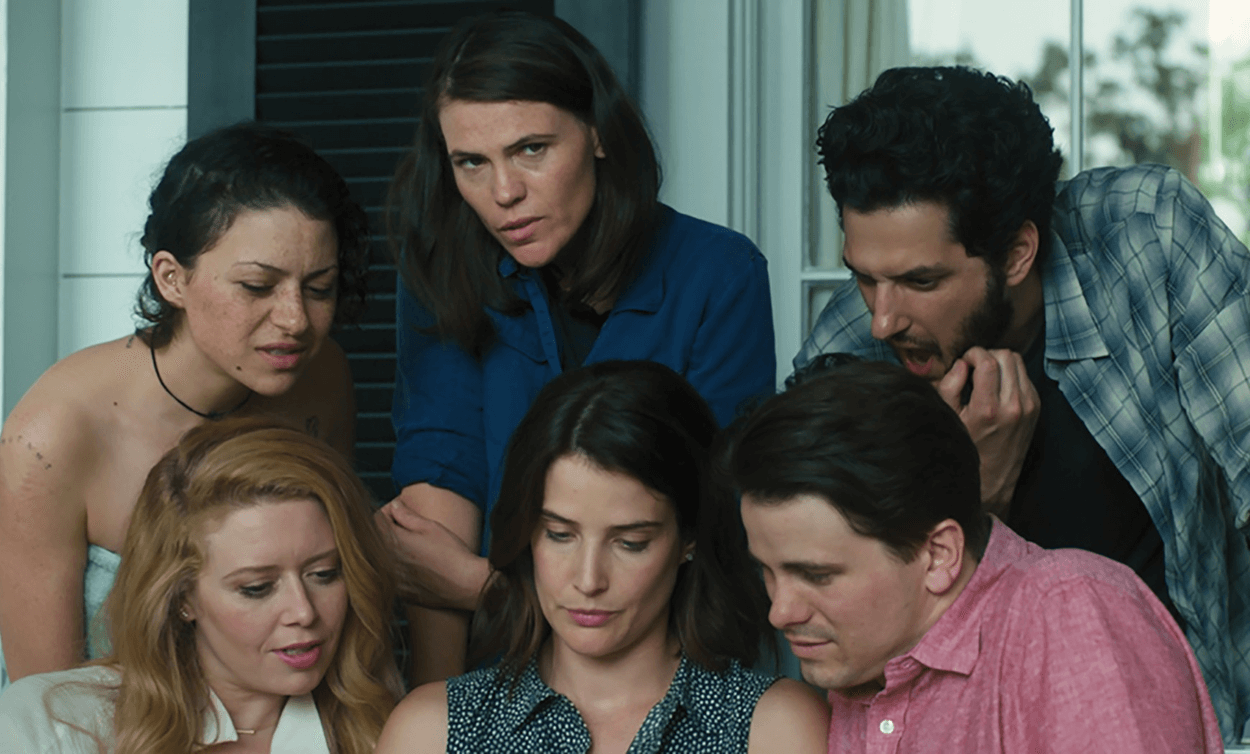The Intervention [2016]: Actress Clea DuVall makes her directorial debut with The Intervention, a comedy-drama following four couples on a weekend break. With one couple’s marriage on the rocks, their friends stage an intervention – quickly realizing that they may have bitten off more than they can chew.
Casting assets: Melanie Lynskey is easily the standout performer within the solid ensemble cast. She is able to skilfully balance comedic timing with genuine emotional depth as things begin to crumble around the four couples. While her character, Annie, aims to charge ahead and take the lead in the scheduled marital intervention, the real demons she faces are brought to the surface. Annie comes off as utterly deluded; a real annoyance that never seems to let up. It can be easy to laugh as she manically harps on about the group’s grand plan before swallowing down several large glasses of wine, not even pausing for breath. Once reality comes crashing down, however, Lynskey is able to rein in this brash character and portray her as something completely vulnerable and quite believable despite her neurotic tendencies. This turnaround is a rather welcome one. The decision to cast Natasha Lyonne as the romantic partner of DuVall’s own character is also a real treat, especially for fans of LGBT cinema favorite But I’m a Cheerleader [1999]. The pair’s on-screen spark is reignited, their chemistry still just as satisfying seventeen years later.
Ups and downs: DuVall’s first shot in the driving seat is commendable, but it is also not without its flaws. Her turn at directing could be deemed a success with this project, with some pretty shots being set up to flatter a frankly stunning filming location. Wide shots capture the space the group takes up within the massive house they share. These shots are also utilized to great comedic effect - DuVall and Lyonne bursting through a relatively quiet scene as they engage in a blazing argument, running in from one side and exiting through the other. However, the script, penned by DuVall herself, falls flat in some aspects. The overall concept of the film is interesting but as it plays out, elements seem rather puzzling. Why do these characters feel so entitled to comment on their friends’ marriage to begin with? If they believe that communication is key, why do they often let it get in their way? Little titbits of character backstory are fed to the audience without real fulfillment come to the end. Jason Ritter’s character is barely explored at all. On the surface, the story is enjoyable but ultimately there are cracks in the foundation.
Fade Out: The film is accompanied by a subtle score composed by Sara Quin of the indie pop band Tegan and Sara. Keyboards and electronic sounds blend in nicely throughout the film’s scenes, particularly during an energetic kickball game sequence and as Alia Shawkat cartwheels alone along the vast lawn in front of the house. “Fade Out,” a b-side song from the latest Tegan and Sara record, is thrown in over the credits as a lyrically appropriate finale piece that complements DuVall’s overall aesthetic sweetly.
Despite playing it safe, The Intervention is an excellent effort from Clea DuVall that stands as a perfectly enjoyable watch.

